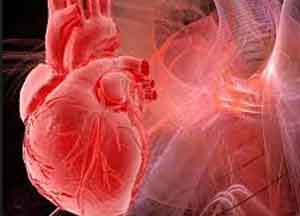- Home
- Editorial
- News
- Practice Guidelines
- Anesthesiology Guidelines
- Cancer Guidelines
- Cardiac Sciences Guidelines
- Critical Care Guidelines
- Dentistry Guidelines
- Dermatology Guidelines
- Diabetes and Endo Guidelines
- Diagnostics Guidelines
- ENT Guidelines
- Featured Practice Guidelines
- Gastroenterology Guidelines
- Geriatrics Guidelines
- Medicine Guidelines
- Nephrology Guidelines
- Neurosciences Guidelines
- Obs and Gynae Guidelines
- Ophthalmology Guidelines
- Orthopaedics Guidelines
- Paediatrics Guidelines
- Psychiatry Guidelines
- Pulmonology Guidelines
- Radiology Guidelines
- Surgery Guidelines
- Urology Guidelines
Exercising for 30 minutes lowers risk of heart failures

Heart failure is a chronic, progressive condition in which the heart muscle is unable to pump enough blood through to meet the body's needs for blood and oxygen.
Though there is no cure for this condition, one can choose to lead a healthy lifestyle to lower the risk of heart failures and a new study has found that exercising four to five times a week for at least 30 minutes can lower the risk of heart failure.
The researchers claimed that exercise could reverse damage to sedentary, ageing hearts and help to prevent the risk of future heart failure.
Study's lead author Dr Benjamin Levine, said, "Based on a series of studies performed by our team over the past five years, this 'dose' of exercise has become my prescription for life. I think people should be able to do this as part of their personal hygiene - just like brushing your teeth and taking a shower."
The team shared that they wanted to find a way to reverse sedentary ageing of the heart - where the heart stiffens in the left ventricle, part of the heart that pumps blood to the body.
Levine noted, "When the muscle stiffens, you get high pressure and the heart chamber doesn't fill as well with blood. In its most severe form, blood can back up into the lungs. That's when heart failure develops."
Here's how one should plan his/her fitness regime:
- One weekly session of a high-intensity 30-minute workout, such as aerobic interval sessions in which heart rate tops 95 percent of peak rate for 4 minutes, with 3 minutes of recovery, repeated four times
- Interval sessions are followed by a recovery session, performed at relatively low intensity
- One day's session lasts an hour, and is of moderate intensity. (This longer session could be a fun activity such as tennis, aerobic dancing, walking, or biking)
- One or two other sessions performed each week at a moderate intensity, meaning you would break a sweat, be a little short of breath, but still be able to carry on a conversation.
- One or two weekly strength training sessions using weights or exercise machines are included on a separate day, or after an endurance session.
Eating a healthy diet, exercise and a range of medications could also help in reducing symptoms.

Disclaimer: This site is primarily intended for healthcare professionals. Any content/information on this website does not replace the advice of medical and/or health professionals and should not be construed as medical/diagnostic advice/endorsement or prescription. Use of this site is subject to our terms of use, privacy policy, advertisement policy. © 2020 Minerva Medical Treatment Pvt Ltd